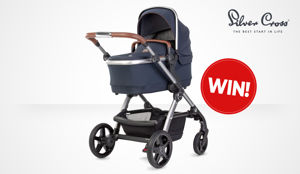Following on from our previous post 20 Things You Can and Can't Do Whilst Pregnant, we thought we’d give you a more in-depth look at the foods and drinks to avoid whilst pregnant, as recommended by NHS specialists. Being one of the most sensitive periods in a woman’s life, it is very important that pregnant women eat a healthy, balanced diet and pay close attention to what they eat to be sure they avoid harmful foods and drinks that may affect the health or development of their growing baby.
Certain foods should be limited, others will need to be completely avoided. Here are 10 foods and drinks you should avoid whilst pregnant:
Undercooked/Raw/Processed Meats
Cut back on eating undercooked meats (such as a steak that’s any less than well-done) or raw meats as they increase your risk of infection from several types of bacteria and parasites including Toxoplasma, E. coli, Salmonella and Listeria. Bacterias can threaten the health of your unborn baby, historically leading to stillbirth in some cases, or severe neurological illnesses including intellectual disability, blindness and epilepsy.
It may still be possible to consume whole cuts of meat such as sirloin, tenderloin and ribeye from beef, lamb and veal, which may be safe to eat when not cooked all the way through. This only applies to whole cuts or uncut, when the outside is completely cooked. The most harmful bacteria is usually found on the surface of the meat, however other bacteria can be found inside muscle fibres. If cooked through, the heat from cooking can kill these bacteria.
Deli meats, hot dogs and lunch meat can also be harmful as they can become infected with bacteria during processing and storage. Also avoid all processed meat products, unless they have been reheated until piping hot.
Raw Eggs
Salmonella can be found in raw eggs, which is why they should be avoided. We’re sorry ladies, that means no more licking the spoon when baking or taking a bite out of raw cookie dough!
In rare cases, Salmonella consumed during pregnancy has caused an infection that causes cramps in the uterus, leading to premature birth or stillbirth.
Foods that commonly contain raw eggs include lightly scrambled eggs, hollandaise sauce, homemade mayonnaise, salad dressings, poached eggs, homemade ice cream, cake batter and cake icings.
Pregnant women should always cook eggs thoroughly, or use pasteurised eggs which are safe to consume.
Caffeine
Don’t worry, you can still have your morning tea, coffee, fizzy drink or hot chocolate, this isn’t a complete ban. Women are generally advised to limit their daily caffeine intake whilst pregnant to a maximum of 200mg per day, equivalent to about 2/3 cups of coffee.
The body absorbs caffeine very quickly and can easily pass into the placenta and foetus. Because unborn babies don’t yet have the main enzyme needed to metabolise caffeine, high levels can build up and could restrict fetal growth and increase the risk of low birth weight at delivery (less than 5lb 8oz) which in turn could increase the risk of infant death and a heightened risk of chronic disease once they reach adulthood, including type 2 diabetes and heart disease.
High Mercury Fish
Mercury is a very toxic element. There is no known safe level of exposure, whether you’re pregnant or not and it is most commonly found in polluted water. In high amounts, it can be highly toxic to your nervous system, immune system and kidneys. It can also cause serious developmental problems during childhood.
Since it is found in polluted seas, large marine fish can absorb high levels of mercury, therefore pregnant women are advised to limit their consumption of known high-mercury fish to no more than 1-2 servings per month. These include Shark, Swordfish, King Mackerel and Tuna (particularly Albacore Tuna).
This does not, of course, mean you should avoid all fish, as eating low-mercury fish during pregnancy is very healthy and beneficial. These fish can be eaten up to 2 times per week as these fatty fish are high in omega-3 fatty acids which are important for your baby.
Undercooked/Raw Fish
If you’re a fan of sushi, we’re afraid you’ll have to take a break from eating it during your pregnancy. Raw fish, including shellfish, can cause several infections which can be viral bacterial or parasitic such as Norovirus, Vibrio, Salmonella and Listeria, though only some of these infections can be passed onto an unborn baby with serious, sometimes fatal, consequences.
Listeria can infect fish during processing, including smoking and drying. The infection can be passed to an unborn baby through the placenta, even if the mother does not show any signs of illness, and can lead to premature delivery, miscarriage, stillbirth and other serious complications. It is therefore advised for pregnant women to avoid all raw fish and shellfish during pregnancy.
Organ Meat
Normally, organ meat can be a great source of nutrients including iron, vitamin B12, vitamin A and copper - all of which are good for an expectant mother and the development of her baby. Eating too much animal-based vitamin A is not recommended throughout your pregnancy as it can cause vitamin A toxicity, as well as unusually high copper levels which can result in birth defects and liver toxicity. It is therefore recommended that you limit organ meat to no more than once per week.
Unpasteurised Milk, Cheese & Fruit Juice
Unpasteurised dairy products such as milk and cheese can contain a harmful array of bacteria including Listeria, Salmonella, E. coli and Campylobacter. Unpasteurised fruit juice is also prone to contamination by these bacteria which can all have life-threatening consequences for an unborn baby. Pasteurisation is the most effective way to kill bacteria without changing the nutritional value of the products.
To minimise the risk of infection, pregnant women are advised to only consume pasteurised milk, cheese and juice.
Alcohol
Hopefully this should be an obvious one, though there is much debate over whether a little amount is allowed, or for it to be cut out completely, despite there being no evidence that any amount is safe.
The NHS advises the safest option is to completely avoid drinking alcohol as it can increase the risk of miscarriage and stillbirth. Even a small amount of alcohol during pregnancy can negatively affect your baby’s brain development, as well as causing fetal alcohol syndrome which involves facial deformities, heart defects and intellectual disability.
Processed Junk Food
During pregnancy, women need increased amounts of essential nutrients including protein, folate and iron. Even though you’re basically eating for two, you do not need twice the calories (only an extra 350-500 per day during your last two trimesters), and an optimal pregnancy diet should include mainly whole foods with plenty of nutrients needed to fulfil the dietary needs of the mother and growing child. Processed foods like fast foods, crisps, cakes and chocolate are generally low in nutrients and high in calories, sugar and fats.
The added sugar and fats have also been linked to a dramatically increased risk of developing several diseases including type 2 diabetes and heart disease. Excess weight gain has also been linked with other complications during pregnancy. These include an increased risk of gestational diabetes as well as pregnancy or birth complications and can also increase your risk of having an overweight child, increasing their risk of becoming an overweight adult.
Unwashed Produce
The surface of unwashed or unpeeled fruits and veg can be contaminated with several types of bacteria and parasites includes Toxoplasma, E. coli, Salmonella and Listeria which can infect produce through the soil or by harvesting, handling, processing, storage, transportation or retail. These bacteria can harm both the mother and the baby.
One very dangerous parasite that may linger on both vegetables and fruit is called Toxoplasma. This infection often causes no symptoms, but some can include flu-like symptoms for a month or more. Most infants infected with Toxoplasma while still in the womb have no symptoms at birth, however, some symptoms could include blindness or intellectual disabilities may develop later in life. A small percentage of infected newborns have serious eye or brain damage at birth.
You can drastically reduce the likelihood of contracting these infections by thoroughly rinsing, peeling and cooking any fruits and vegetables you eat.
Ultimately, however you view it - a diet, a lifestyle change or a temporary restriction, as long as you maintain a healthy diet and make a mental note of the above-listed foods and drinks to avoid whilst pregnant, both you and baby will be healthy. 9 months isn’t that long and before you know it, not only will you be able to eat whatever you like again (except when breastfeeding a baby that may have allergies [link]), you’ll have an adorable bundle of cuteness to coo over and begin the next chapter of your life; as a mum.
If in doubt, consult the NHS website for a full list of food and drinks to avoid whilst pregnant.





